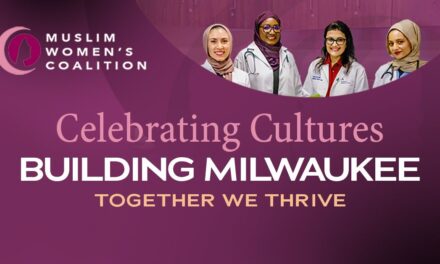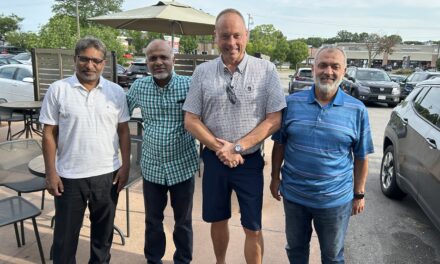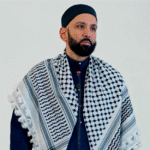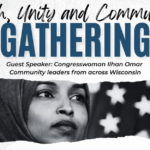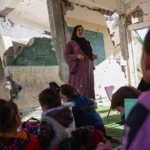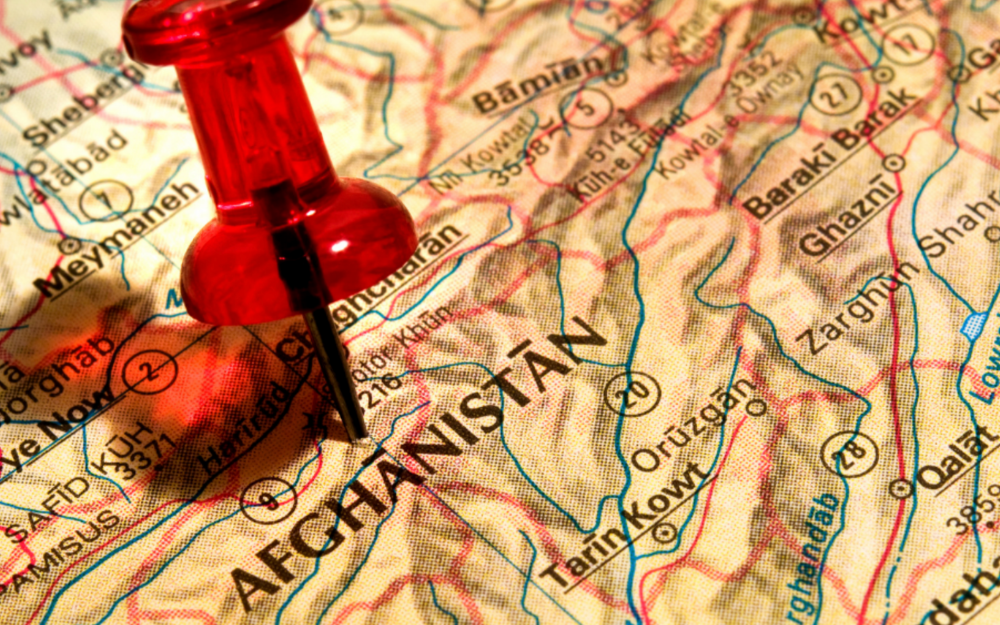
The Wisconsin Council of Churches, a statewide network of Christian churches and faith-based organizations based in Madison, hosted a seminar last week with information on Islam and Afghan culture that included a discussion about how “Christians may walk alongside our Afghan neighbors and create a more welcoming environment in our communities,” the WCC website announced.
WCC invited Janan Najeeb, president of the Milwaukee Muslim Women’s Coalition and director of the Islamic Resource Center (recently featured on TMJ4), to present Cultural Competency for Welcoming and Supporting Afghan Muslims, Thursday, May 26, to WCC members. A recording of the program is available here.

Rev. Peder Johanson, volunteer coordinator of the WCC Afghan Refugee Response
“One of the things we’ve been wanting to do more of is to share information and opportunities for our volunteers and our congregations to learn more about Afghan culture and Islam, and grow in ways that allow each of us to be a more welcoming person, a more welcoming neighbor to people from other cultures,” said Rev. Peder Johanson, a Lutheran pastor and volunteer coordinator of the WCC Afghan Refugee Response.
He said he hopes this program will prompt WCC members to have conversations in their congregations and communities to answer some questions and help others become “more comfortable being a welcoming neighbor.”
WCC has actively supported Afghans who were temporarily housed at Ft. McCoy and those resettled in Wisconsin after Afghanistan fell to Taliban control at the end of last summer. At least 838 Afghan evacuees have settled in Wisconsin, according to a May 8 report by Wisconsin Public Radio.
Many of them face “an uncertain future,” Johanson said in statement on the WCC website. Because “they were resettled under Humanitarian Parole and currently enjoy certain protections under Temporary Protected Status, they have no clear path to permanent residency or citizenship.” WCC is contributing $20,000 to the efforts of Catholic Charities’ Immigration Legal Services to recruit, train, coordinate and support volunteer attorneys for Afghan asylum seekers, he wrote.
Meanwhile, Afghans have challenges adapting to life in Wisconsin. In Johanson’s introduction of Najeeb, he described her as one who addresses “the tremendous need to bridge the gap between Americans’ perceptions of Islam and Muslims in society and the actual beliefs and practice of the vast majority of the world’s Muslims.”
Here are paraphrased highlights from Najeeb’s presentation on Afghanistan, Islam and Afghan culture:
On recent U.S.-Afghanistan history
Afghanistan has been invaded so many times over its history because it is strategically located. It connects Europe and Asia.
The former Soviet Union invaded in 1979, which led to a nine-year war. That war became a proxy war where the United States armed the Taliban. You can find photos online of the Taliban being welcomed in the White House. We worked with them very closely until September 2001, when the U.S. was attacked by terrorists, mainly from Saudi Arabia, who trained in Afghanistan. After that, the U.S. and NATO began bombing Afghanistan. Part of the Afghan population supported the U.S. mission and worked alongside them.
In 2021, the U.S. withdrew and it was a very messy withdrawal. It shocked the entire world. Within days, the Taliban recaptured Afghanistan. After our 20-year war, which is the longest in U.S. history, the entirety of Afghanistan fell in a matter of days.
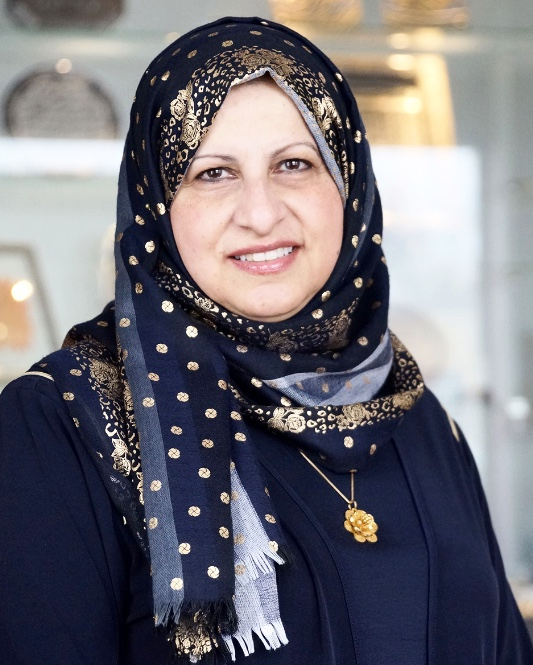
Janan Najeeb, president and founder of Milwaukee Muslim Women’s Coalition
About 114,000 Afghans were airlifted out of Kabul. Of them, 60,000 came to the United States to military bases. One of them was Fort McCoy in Wisconsin. It held thousands of Afghans for numerous months. Those who were airlifted out had worked closely with the United States as interpreters and army personnel, people working on women’s rights, education, media and high-tech fields.
On the Afghan people
Afghanistan has one of the youngest populations in the world with 42% under the age of 15. Only 10% have completed their education through 12th grade due to decades of conflict and a lack of resources. This had not been the case prior to the 1970s when Afghanistan had many educated people.
Their culture reflects elements of the countries that border Afghanistan: Pakistan, Iran and countries that were in the Soviet Union—Uzbekistan, Turkmenistan and Tajikistan. You will see that diversity reflected in their faces. And you’ll see the influence of these different countries in their foods, clothes, languages and holidays. One of the things that always concerns me is when we look at people who have suffered due to war or oppression as “victims.” We have a certain image of them that is often unfair.
In the U.S., Afghans are heavily concentrated in California, Virginia and the D.C. are, New York and Texas. Many of them came during the Soviet Union’s invasion of Afghanistan. The more well-to-do Afghans were able to come into the U.S. at that time. They represent the brain drain to the West, highly educated and affluent people. We are already seeing some of the new arrivals to Wisconsin leaving this state to go where they have relatives or where they know more Afghans are present.
It is a patriarchal society. This is something we see whenever countries have dealt with decades of poverty or decades of war. The first people who suffer are always the women and the children. Men hold primary power, particularly in the villages and in the rural areas. They are tribal and have deep commitments to their particular groups.
Afghans are overwhelmingly Muslim. Ninety percent are Sunni Muslim and 9.7% Shiite. However, it is interesting to note that the first wave of Afghans that came to this country were overwhelmingly Sunni Muslim, although many were not very religious. Yet, the individuals who were airlifted last year were from the Shiite and Hazara groups (Hazara is an offshoot of Shiite Islam). Many of the people who worked with the U.S. were from minorities and didn’t have the same opportunities as those from majority groups.
They are a warm and generous people. Anytime we’ve seen them, they always invite us for tea. They always want you to come in to share a meal. If they see you often, pretty soon you’re almost like family to them. They’re very family oriented and very community oriented.
On Muslim religious practices
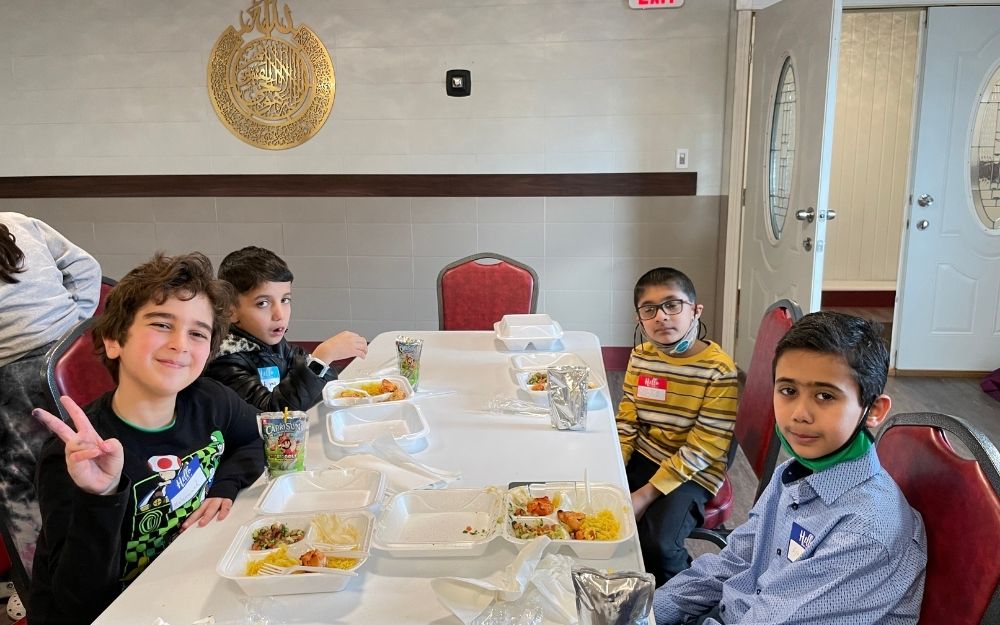
Milwaukee Muslim Women’s Coalition learned to serve the new Afghan guests familiar foods they enjoy.
Even when Afghans are not religiously observant, the culture of Afghanistan is Islamic. There is no pork there. Alcohol is greatly frowned upon. So regardless of whether they practice their faith or not, or the degree, Islam has an impact on Afghan practices and views. This is important to know for those concerned about Afghan families who have been placed in a haphazard way, not close to stores with the kind of foods they want, not close to any mosque. We (the MMWC) get calls from places like Sheboygan where there is just one family and they are talking about an intense amount of depression.
We noticed this when we picked up children for the Buddy Program, a program the Milwaukee Muslim Women’s Coalition organized to partner American teens with new Afghan arrivals. We served lunch and found later that the kids only ate the rice. They did not eat the meat because they assumed in the U.S. the meat was not halal (not meeting Islamic dietary guidelines, similar to kosher). So, all that meat went into the trash. We learned we needed to tell them the meat was halal.
We brought Afghan individuals to Ramadan iftars, the breaking of the fast. It was the first time many of them realized there are Muslims in America, that there is a community here.
Dress codes are also an issue. When you go into their houses, you want them to be comfortable with you. You don’t want to be wearing shorts or revealing cleavage. During the Buddy Program, it was a little uncomfortable because we had some high school girls who volunteered to be buddies. Some of the Afghan moms and dads came to observe what was going on and to them some of the girls appeared half-naked. They didn’t feel comfortable with their kids sitting with a buddy like that.
Of course, this is an education process on both sides. It was their first experience in the United States, understanding that there’s a wide range of dress. Our goal is to help them assimilate into this country and feel comfortable.
On customs around gender
Even among Muslims, some cultures don’t have women and men pray in the same room, even if they are separated. To try to force it makes them agitated. It is important to remember we are dealing with a society where genders are separate and do not interact. We had a man picking up participants for the Buddy Program, some families would not send their girls because there was a guy who was not related to them in the same car, a closed space.
Also, they greatly prefer same gender medical providers. Having a male and female who are not related in the same room is something that is not acceptable. A female will always need to have another female with her. Sometimes a male volunteer will stop at a home to drop items off and a woman won’t answer the door because she is at home alone or at home with her children.
Afghans do not usually shake hands with people of the opposite sex and definitely do not hug a member of the opposite sex. They may put their hand on their heart which is a warm way of acknowledging the other person without offering your hand.
On health issues
Something to keep in mind is the impact years of war have had on health. It has particularly around healthcare years of war have led to significant malnutrition. In this community, 41% of children have stunted growth. That was actually the first thing that caught my eye. It affects their learning as well.
And, of course, there has been trauma and may be significant mental health challenges. Some have PTSD. We try to find services for those individuals.
On immigration issues
I do have to get on my soapbox. The idea that these individuals are the ones that were helping America, and they’re brought here on an evacuate status, so they don’t have all the benefits they would have if they were categorized as refugees.
When the invasion of Ukraine took place, the president immediately jumped up and offered 100,000 spots for Ukrainians to have refugee status, which gives them all the rights and opportunities of a refugee. It’s really unfair. They are being told that to be eligible for a green card and eventually become a naturalized citizen, they will have to apply for asylum, which is one of the most difficult ways to become American citizens. It will require many hours of legal assistance from a lawyer.
On food preferences
Beyond religious standards for food, there are preferences. Rice is a staple. I remember the very first day we had the program for Afghan children here at the center, when they were in the motels with nothing to do. Our librarian, a white American Christian, ordered pizza. They looked at it and they had no clue what this was. They were not interested in it and nobody ate. After that, we made sure to bring very culturally specific foods. And, of course, no pork. Even Christians who live in predominately Muslim countries don’t eat pork.
Also, they may not have experience with using forks to eat. Spoons will be easier for them.
On school-related issues
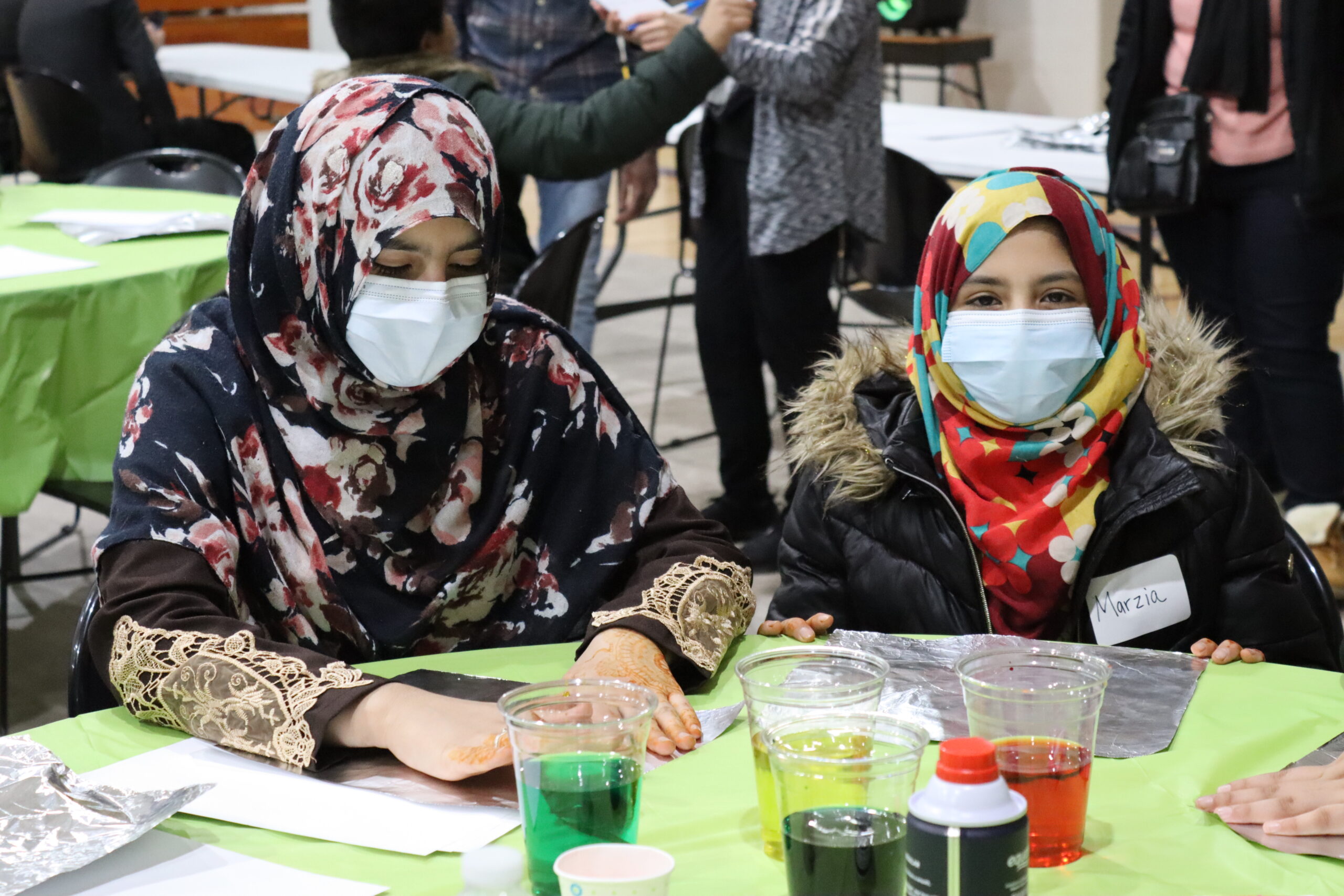
They are coming from a country where schools are separated by gender, so girls have their own schools and boys theirs. Now, suddenly they’re in the same schools and they are shocked by some things they see and hear about, things they look at as moral issues, like touching and hugging and kissing, students wearing revealing clothes, all types of things. It is a major culture shock for them. It has led to a lot of people not wanting to be in school.
And there are the linguistic barriers, not understanding what is being said. And the parents not understanding communications from the schools, letters they are supposed to sign and the like. They are not used to parent-teacher meetings. It is not something they are used to.
And they take all their trauma with them, so someone revs up their car or there is some exploding sound and these kids jump from fright. They associate these sounds with war. We have to be gracious and understanding.
Bullying is also an issue in schools. It’s a problem many refugee kids have to deal with.
Another issue is that through schools, the kids become really immersed in American culture. The parents don’t know what they are dealing with and don’t understand it. They don’t want their children to forget their culture and morals, while the kids are trying to fit in and not be isolated.
On body language
It is not traditional in Afghanistan, in some situations, to look directly into someone’s eyes—a student into the teacher’s eyes or a patient into the doctor’s eyes, particularly when dealing with someone of another gender. That’s a no no. So when we in America are told to give a firm handshake, look the other person directly in the eyes and speak clearly, we need to understand that they might not be doing that in order to show respect, or in the case of women, in order not to be misinterpreted or abused.
We’ve been talking with the Afghan students quite a bit about the concept of personal space, that you don’t put your hands on people around you or lean into them because you want them to hurry up.
See the full discussion here.

